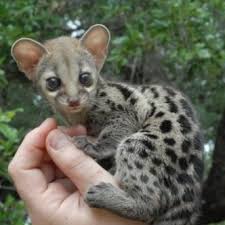

By Dr. Kathlyn Reed
Emergency and Critical Care Intern
Weird and wonderful pets are growing in popularity every day, from the more commonplace rabbits and guinea pigs to the exotic and bizarre sugar gliders and pythons. As an emergency veterinary facility, we receive phone calls every week from new exotic pet owners that find themselves with a sick animal and aren’t sure where to turn. The most crucial step a pet owner can take to avoid such a crisis is to appropriately research and prepare before taking on a new animal.
Crucial things to consider include:
Why do I want to take on the responsibility of an exotic pet?
While the idea of having a snake or a parrot sounds cool, these are complex animals with unique needs, and the type and level of companionship they provide will vary greatly between species. Many exotic pet owners are disappointed to find that their lizard or parakeet does not offer the same degree of companionship and loyalty as a dog or a cat.
How long am I willing to undertake this commitment?
People commonly underestimate the duration of commitment involved with adopting an exotic pet. African clawed frogs commonly sold as tadpoles so children can watch them metamorphose can live 25-30 years! Some parrot species can live into their 80’s, and some turtles and tortoises may live to be 100 years old! Even rabbits, commonly thought of as Easter novelties, will require 10-12 years of specialized care.
What unique needs does this animal have?
Many exotic pet species are naturally very social, and need to live in social groups or have dedicated owners to provide stimulus for several hours a day. Sugar gliders naturally live in groups of 2-3 in the wild, and have a highly specialized diet. Rabbits require a specialized diet and availability of chew toys at all times to prevent life-threatening dental disease. Reptiles require closely controlled temperatures and specialized lighting, along with an appropriate diet to avoid metabolic bone diseases.
Can I afford to care for this animal appropriately?
The cost of purchasing an exotic animal is often the smallest single cost associated with keeping that animal. Reptiles require specialized enclosures, lighting, nutritional supplements, and diets to thrive under human care, while rabbits and guinea pigs need fresh produce regularly for optimum health. These costs, along with unexpected veterinary costs, can add up quickly and be overwhelming for a pet owner.
Where did this animal come from?
Research the breeder or supplier first to ensure that you are not purchasing endangered species collected from the wild. Many rescue organizations abound, looking for homes for exotic pets whose owners were unable to care for them. Also be sure that the animal you want to keep is legal to house in a private home in your state and county.
What will I do if my animal becomes sick?
This is one of the most important questions to consider before taking on the responsibility of an exotic pet. Many family veterinarians are unable to accommodate exotic pets, as they require specialized diagnostic equipment and appropriately trained staff to handle safely. Before you adopt an exotic animal, contact veterinarians in your area to see if they would be able to see your new pet for both routine and emergency healthcare.
If appropriately cared for, some exotic animal species can provide many years of companionship. Caring for animals not commonly kept as pets can be a rewarding experience, and provide a type of relationship with an animal very different from the relationships humans have with dogs and cats.
The most important thing an aspiring exotic pet owner can do is to never buy an exotic animal as an impulse purchase. The best thing you can do for yourself and your exotic animal is to do as much research and preparation as possible to ensure that you are setting yourself up for success for a long, happy, healthy life for your new weird and wonderful companion.
Dr. Kathlyn Reed is an Emergency Veterinary Intern at Aspen Meadow Veterinary Specialists. AMVS is a 24-hour veterinary facility providing specialty internal medicine, orthopedic surgery, oncology, emergency, critical care, and pain management. They are located in Longmont at 104 S. Main St. For more information, go to
 Print This Post
Print This Post







